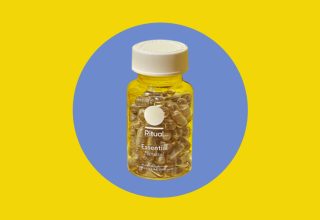What Vitamins Help Restless Leg Syndrome: Everything You Need To Know In 2023.
If restless leg syndrome has made you restless for a cure, you have found the correct article to guide you. Most home remedies for restless legs do not work well; this could be for various reasons. As a second resort, you may be thinking “What vitamins help restless leg syndrome?” You must read on to find the answer.
Restless leg syndrome urges the person to move their legs due to an uncomfortable feeling. This activity can be observed in people during the evening or later in the night. Particularly, when a person is sitting or lying down, they are observed to engage in this movement.
This is because it provides them an opportunity to ease their unpleasant feelings.
The condition is medically known as “Willis-Ekbom disease” which can be observed in children or adults, irrespective of their age. This is also known to interfere with the daily activities of people, mainly disrupting their sleep.
What Are The Symptoms Of RLS:
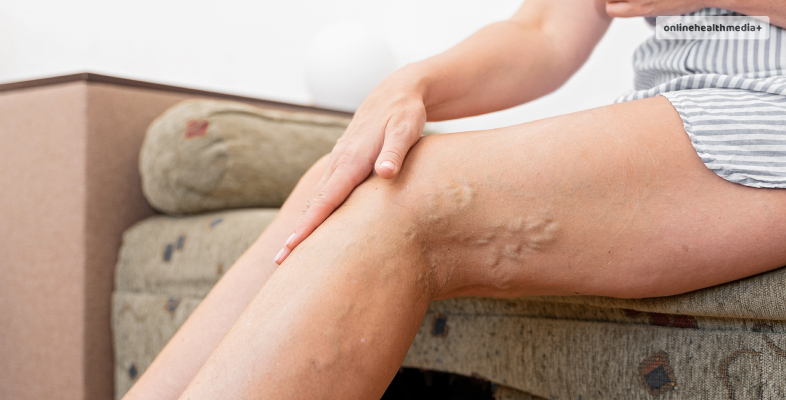
The primary symptom of this condition is the twitching of the legs. However, there are other associated symptoms as well, these include:
- Sensation begins while resting
- Relieved while moving your legs
- Worsened symptoms in the evening
- Leg twitching at night
The unpleasant sensation that compels one to move their legs is usually observed in their feet or legs. These sensations are felt in both sides of the body, specifically the lower extremities rather than the upper ones.
The connection between the sensation becoming worse at night was found to be with the lower levels of dopamine. Low dopamine levels cause muscle spasms, leading to involuntary movement. This condition is also said to be observed in pregnant women.
What Causes RLS?
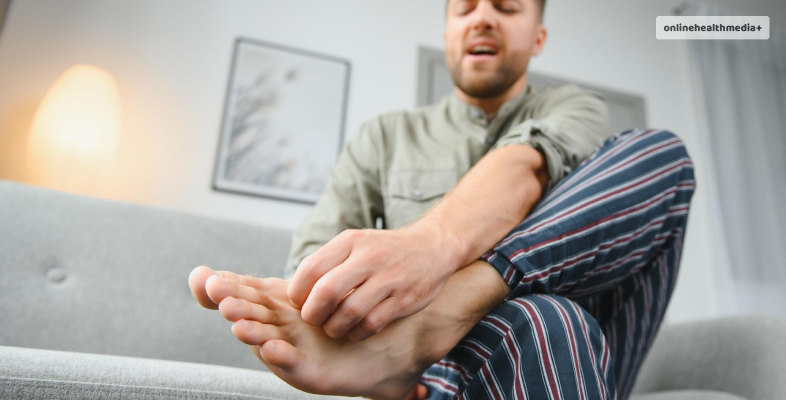
The cause of RLS is not solely pinpointed to an injury or another physical reason that affects the nerves. However, it is attributed to an imbalance in the levels of dopamine, present in the brain. The muscle movement is controlled by this brain chemical, which manifests as leg twitching.
The other causes of this condition are known to be genetic predisposition or being prone to the development of this disease due to familial history. As well as being pregnant.
The condition is suspected to be present in the family if it is detected in a person before the age of 40. With scientific evidence proving the condition’s presence in the genes.
Risk Factors:
People who have been diagnosed with the following conditions are more likely to develop RLS:
- Renal disease (end-stage)
- Deficiency of iron
- Conditions related to the spinal cord
- Sleep deprivation
- Neuropathy
- Parkinson’s disease
- Nerve damage
- Sleep deprivation or sleep apnea
- Excess use of nicotine, caffeine, or alcohol
- Hormonal changes due to pregnancy are observed to go away with time (within the fourth week of delivery).
- Medications such as antipsychotic drugs, anti-nausea, and antidepressants cause the levels of serotonin to go up, thus enhancing the symptoms of RLS.
How Can This Be Detected?
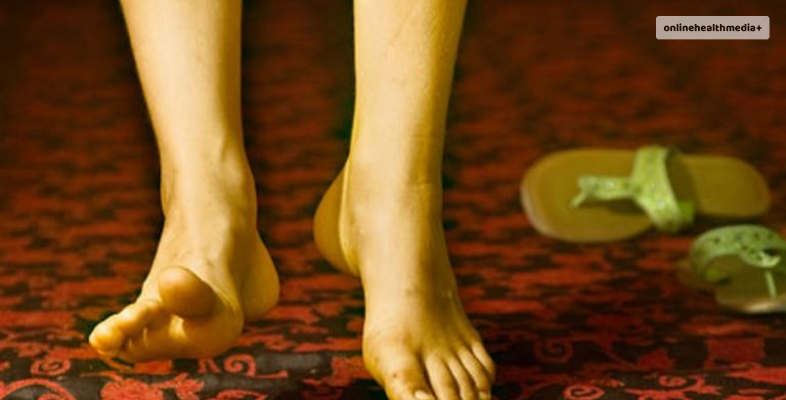
The detection of this condition is not possible through a direct method. However, the following tests can help indicate the possible cause of the condition if a patient reports RLS:
- Ferritin level testing: The levels of ferritin in the blood are a good indicator of the levels of iron in the brain. Thus, to detect iron deficiency as the cause of this condition, this test can be a useful indication.
What Helps Ease This?
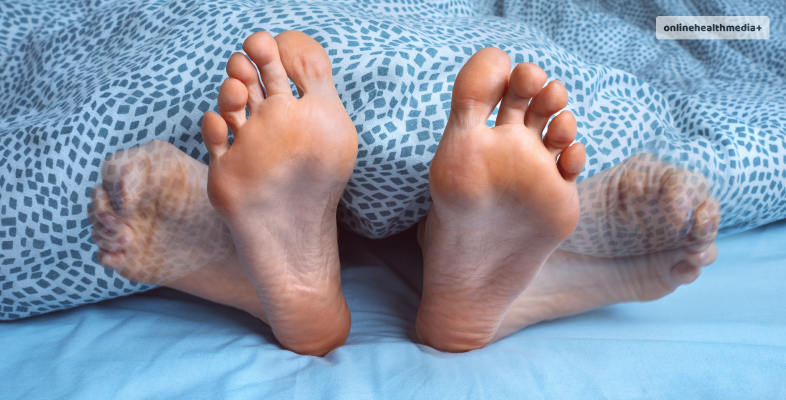
There are no concrete treatments that are developed for the condition, however, it has been seen that a few alternatives can provide relief from the symptoms of RLS. The use of home remedies and supplements for restless leg syndrome are all possible “cures” for this condition.
| NB: Only consume medication or supplements with prior consultation from your doctor. Allergies or side effects can lead to the severity of the existing condition, which could be life-threatening. |
The following list provides detailed information on the vitamins and supplements useful to lessen the severity of the condition:
- Vitamin B6
The disease is known to be prevalent in people with B6 deficiency. Thus, taking vitamin B6 allows one to increase dopamine activity, which allows one to alleviate the symptoms of this condition. This is due to the direct link between Vitamin B6 and the levels of dopamine.
The recommended dose of the vitamin is determined by the physician, however, the general recommendation is to consume at least 50-100 mg daily, by dividing the dosage into three.
The NIH RDA (Recommended Dietary Allowance) for adults is 1.3-2.0 mg/day, based on sex and age.
- Vitamin B12
Low levels of B12 in people lead to an enhancement in the symptoms associated with RLS. The low levels of B12 in such individuals are found to cause higher discomfort. Thus, in the list of vitamins for restless legs, cobalamin is included. A study in 2022 found that vitamin B12 deficiency can progress the condition.
The NIH RDA for adults is 2.4-2.8 mcg/day, based on sex and age.
- Vitamin C
The effectiveness of this vitamin has been observed for this condition through research. The vitamin is known to be effective through its action of increasing collagen production as several skin issues are noted in the condition.
Vitamin C thus supports the level of collagen, which can alleviate the symptoms associated with RLS. These include twitching, itching, and the uncomfortable sensation that one gets.
The NIH RDA for adults is 75-90 mg/day, based on sex and age.
- Vitamin D
A study found an association between Vitamin D deficiency and RLS. The presence of vitamin D deficiency facilitates RLS in individuals, moreover, it is also associated with the dysfunction in dopamine and iron deficiency.
The supplementation of this vitamin thus improves the experience of the person, a study in 2023 concluded.
The NIH RDA for adults is 15-20 mcg/day, based on sex and age.
- Vitamin E
This vitamin has been known to provide relief from the symptoms of RLS. This comes from a study conducted in 2016, that found an association between improvement in RLS and Vitamin E supplementation. Another study found the combination of Vitamins C and E to be effective against the condition.
The NIH RDA for adults is 15-19 mg/day, based on sex and age.
- Inositol Nicotinate
Made of Vitamin B3 and inositol, this component is known to alleviate the symptoms associated with RLS. If an individual is experiencing RLS due to issues in circulation, they are usually prescribed inositol nicotinate.
The NIH RDA for adults is 14-17 mg NE/day, based on sex and age.
(NE: Niacin Equivalents)
- Iron Supplement
In the list of supplements for restless leg syndrome, iron is one of the micronutrients that play a chief role in the restoration of normal dopamine levels in an individual. The condition is triggered especially due to the fluctuation in the levels of dopamine. It is restored through the supplementation of oral iron. Researchers have found a link between iron supplements and a reduction in the severe symptoms of RLS.
The NIH RDA for adults is 8-27 mg/day, based on sex, pregnancy, and age.
- Magnesium
The supplementation of magnesium leads to alleviation in the symptoms of RLS. There have been links between low levels of magnesium and a person developing signs of RLS. Thus, consuming this macronutrient can result in counteracting the symptoms of RLS. This can be administered either orally or through IV, the former is preferred.
The NIH RDA for adults is 310-420 mg/day, based on sex and age.
As most home remedies cannot immediately provide relief from the symptoms of RLS, a person experiencing this condition may find relief through vitamin supplementation post-recommendation of a doctor.
Conclusion:
This was all about Restless Leg Syndrome and the vitamins that can be taken to find relief from the condition. The article also informed on the causes and symptoms of the condition so that you, my reader, can identify the condition easily.
Recovered from RLS and have tips to share? Comment your thoughts below.
Also read:
- 7 Healthy Foods To Eat In Your Forties
- Liquid Vitamins Vs Pills: Which Is Better?
- Hiya Vitamins: Know Everything About These Vitamin Supplements

